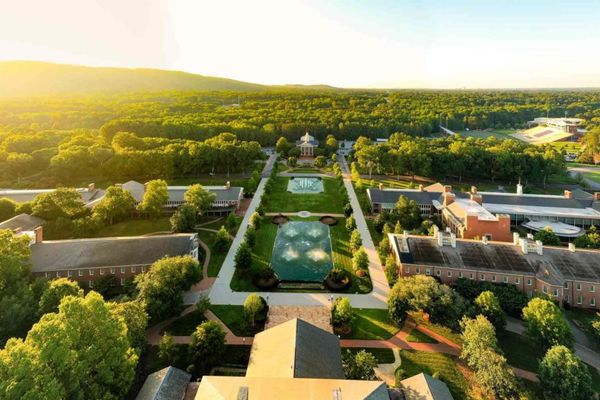One thing that all Furman students, especially those who live on campus, will likely witness in their time here is emergency situations. It is inevitable that at some point we will see ambulances and firetrucks outside our buildings and text our friends, “What is going on outside Lakeside?” or “Why are there fire trucks outside SoHo?”
Last year, Michael Peeler (‘24) drew attention to the problems related to the lack of addresses on Furman's buildings in his article “Furman Has An Address Problem.” The piece points out the safety hazard that not having addresses for individual buildings, such as Geer Hall or Plyler Hall, may pose to students in need of immediate medical attention. But the issue extends much further than some may imagine: it impacts the Furman community at large. Our lack of building addresses compromises the safety of Furman employees, those contracted through third parties such as Bon Appetit or EPI, and the general public visiting Furman.
So far this school year, I have witnessed two separate instances of emergency responders' showing up to medical calls concerning DH staff. The emergency coordination for each of them was convoluted because, as of today, the only way in an emergency to pinpoint exactly where Daniel Dining Hall is (for someone like a firefighter who may have never been on campus before) is to contact FUPO and have them share the GPS with an operator. It’s even labeled on the anaphylaxis emergency kit in the Library Cafe: "Step 1: Call 911 and FUPO." But it shouldn’t be necessary to make two separate calls. After all, 911 is who we know to call in an emergency situation, and we might not have the FUPO number on hand. Moreover, if one does not know to call FUPO in addition to 911, directing medical attention to a site on campus may take even more time. The response time to future calls for help could be significantly shortened if Furman would take the appropriate measures to assign an address to each building.
In addition to students, faculty, and staff, this hazard poses a risk to visitors to campus. Families take walks and ride their bikes around campus almost every day, and if they were to experience an emergency, they would likely run into the same problem. Other kinds of visitors, such as college tour groups and families of students, are also subject to this risk. They too may not know FUPO's number and would also have an especially hard time relaying directions to a 911 operator. Though we are a private institution, we open our grounds to the public nearly every day and this poses a risk for everyone who uses our space. People attending weddings, children in summer camps, and even alumni who come back to visit are each taking a risk when they park and step out of their cars because if a medical emergency happens, they or a loved one may not survive due to delayed response. It is impossible to predict emergencies, and there are aspects of them that are out of our control, but facilitating easier navigation around campus is not one of them. This is entirely in our hands.
We are approaching a year since the “Furman Has An Address Problem” article was initially published, and we have yet to resolve the issue. Other than the Furman Police Department, the Earle Student Health Center, and a few parking lots, most buildings are grouped under our main address: 3300 Poinsett Hwy. Last semester, one of my friends witnessed a postdoctoral fellow have a seizure during lab and ran into the same problem: EMS didn’t know where Plyer was. It is unacceptable for the layout of the campus to be unclear in a time of crisis. The few buildings that do have addresses show that addresses other than 3300 Poinsett Highway can and should be introduced.
Nobody ever thinks that an emergency will happen to them until it does, and it can be hard to know exactly what to do, where to go, or how to react. However, the burden of directing help around campus should not fall upon any student, visitor, employee, or first responder. The Furman community is far more than just a group of students. We are a part of Greenville; we are a part of the Upstate, and we are a part of South Carolina. It is our duty as a community to look out for the safety of everyone that steps foot on our grounds.
